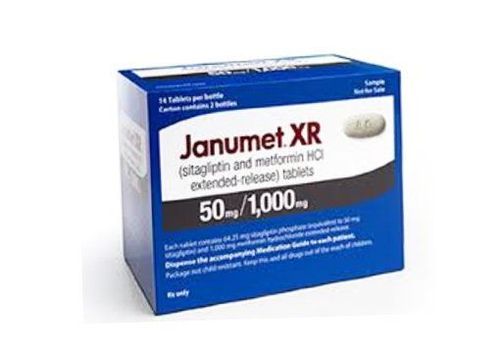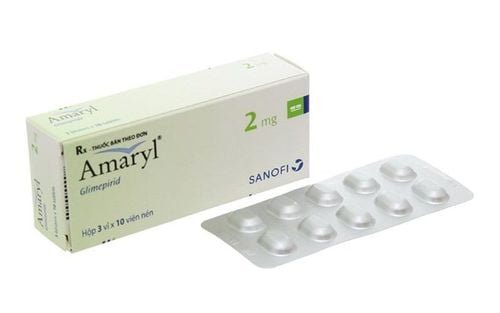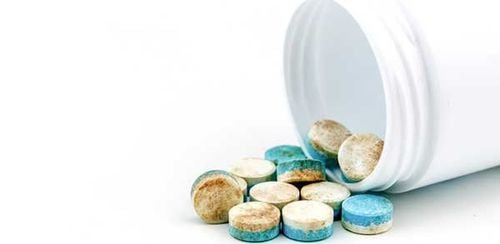This is an automatically translated article.
Diabetes medication is an effective method to control blood sugar for people with diabetes. But sometimes these drugs have side effects of diabetes medications or interact with other medications that are being taken together to increase side effects or make diabetes medications less effective or too effective.
1. Biguanides . drug group
Group ingredients
This group of drugs includes Metformin (Glucophage, Glucophage XR, Glumetza, Fortamet, Riomet). Metformin is often the first drug that doctors prescribe to patients for type 2 diabetes. This class of drugs works to cut blood sugar by improving the way the body uses insulin and reducing the amount of sugar the liver makes.
Side effects
You may experience nausea, gas, bloating, diarrhea, vitamin B12 deficiency and stomach upset. These problems usually go away in a few weeks as your body gets used to the medicine. In rare cases, metformin can cause a serious condition called lactic acidosis because too much lactic acid builds up in the body. Call your doctor at once if you have any of the following symptoms:
Feeling unusually weak, tired or sleepy Short of breath Unusual muscle pain Sudden stomach pain with vomiting

Người bệnh cảm thấy khó thở sau dùng thuốc
Drug interactions
Some drugs can affect certain enzymes that metformin uses to work. Therefore, your doctor will need to monitor your blood sugar or adjust your dose of metformin if you take certain medicines such as Amiloride, Cephalexin, Cimetidine. Anticholinergics, such as dicyclomine and oxybutynin, can increase the amount of metformin your body absorbs, leading to low blood sugar.
2. Sulfonylureas . group
Group ingredients
This group of drugs includes: Glipizide, glimepride, glyburide. These drugs lower blood sugar by helping the pancreas make more insulin.
Side effects
The most common side effect of this class of drugs is low blood sugar, so the patient will have symptoms such as shaking, sweating, dizziness and confusion.
Blood sugar that is too low can be life-threatening. Therefore, to prevent this condition, patients need to eat reasonable and not skip meals. Other side effects include weight gain, dark urine, and stomach upset.
Drug interactions
There are about 100 drugs that can change the way sulfonylureas work. Some can make them work too hard leading to too much hypoglycemia or reducing the effectiveness of the medication. Therefore, doctors need to monitor blood sugar regularly to adjust the dose of sulfonylurea drugs.
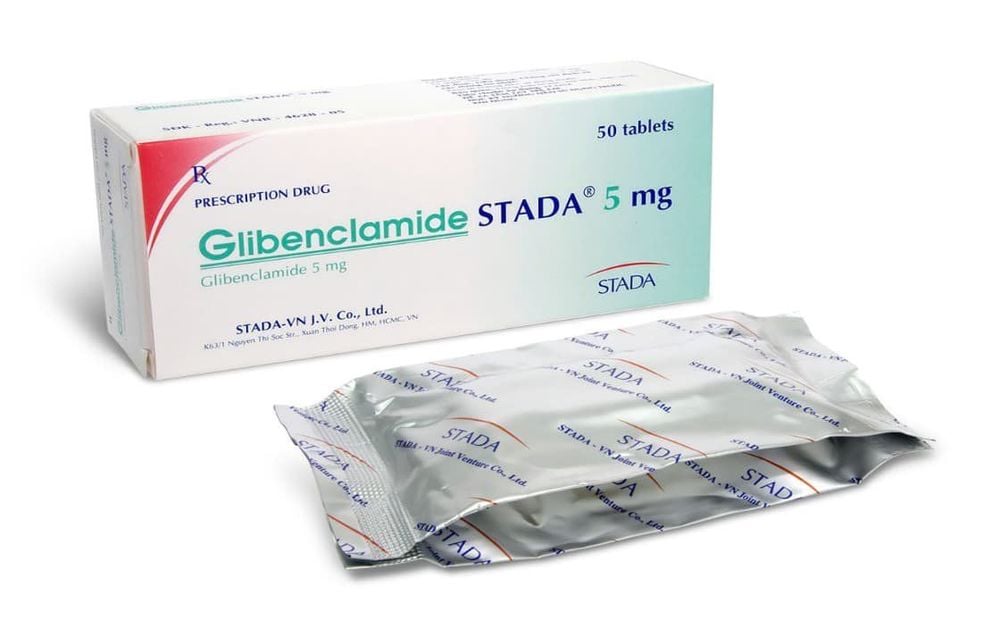
Nhóm Sulfonylureas
Drugs that can affect how sulfonylureas work include:
Azole antifungals, including fluconazole and ketoconazole Some antibiotics, such as chloramphenicol Cholesterol-lowering drugs, such as gemfibrozil, clofibrate Triple antidepressant ring H2 blockers Gout medications, such as probenecid and sulfinpyrazone
3. Thiazolidinediones group (TZDs)
Group ingredients
This group of drugs includes Pioglitazone (Actos), rosiglitazone (Avandia). These drugs work by improving the sensitivity of tissues to insulin.
Side effects
Due to the way this group of drugs works, it causes people to retain water and lead to edema, weight gain and increased levels of bad cholesterol (LDL). This class of drugs also has some serious side effects, such as bone fractures and heart failure, as well as an increased risk of bladder cancer in women.
Drug interactions
Some drugs block enzymes during the action of TZDs. Your doctor may want to prescribe another medicine if you are taking one of these: Fluvoxamine, Gemfibrozil, Ketoconazole. Other drugs, when combined with TZDs, can increase the risk of heart problems such as NSAIDs, Sulfonylureas, and Nitrates.
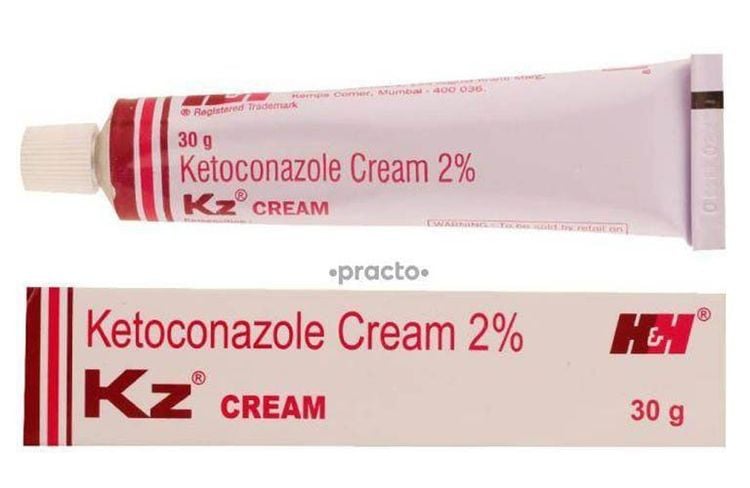
Ketoconazole dạng kem bôi
4. DPP-4 . Inhibitors
Group ingredients
This group of drugs includes alogliptin, linagliptin, saxagliptin, and siagliptin. These drugs help the pancreas release more insulin after a meal.
Side effects
When using this group of drugs you can have a sore throat, stuffy nose, stomach pain and diarrhea. Some serious side effects of this class of drugs include an increased risk of acute hepatopancreatic failure, severe heart failure, and joint pain.
Drug interactions
Some drugs can affect how much DPP-4 inhibitors are absorbed in the body. Therefore, your doctor needs to monitor your blood sugar regularly and watch for potential side effects if you are taking DPP-4 inhibitors with the medicines Atazanavir and ritonavir, Clarithromycin and rifampin, Diltiazem. .
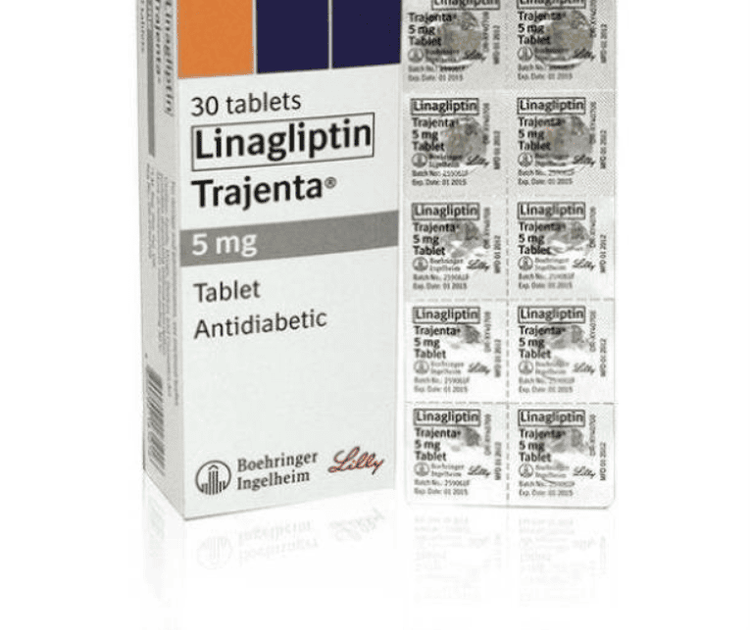
Thuốc linagliptin
5. SGLT2 . inhibitor class
Group ingredients
This group of drugs includes Canagliflozin, dapagliflozin, empagliflozin, ertugliflozin. These drugs act in the kidneys and inhibit glucose reabsorption, resulting in more glucose being excreted in the urine, thereby helping to lower blood glucose.
Side effects
These drugs increase the risk of urinary tract infections, fungi and cause excessive hypoglycemia. These classes of drugs are also effective in reducing the risk of hospitalization for heart failure in people with diabetes and reducing the risk of kidney disease.
Drug interactions
SGLT2 inhibitors do not interact with many drugs. A few of them, like Rifampin, can make the class of drugs less effective.
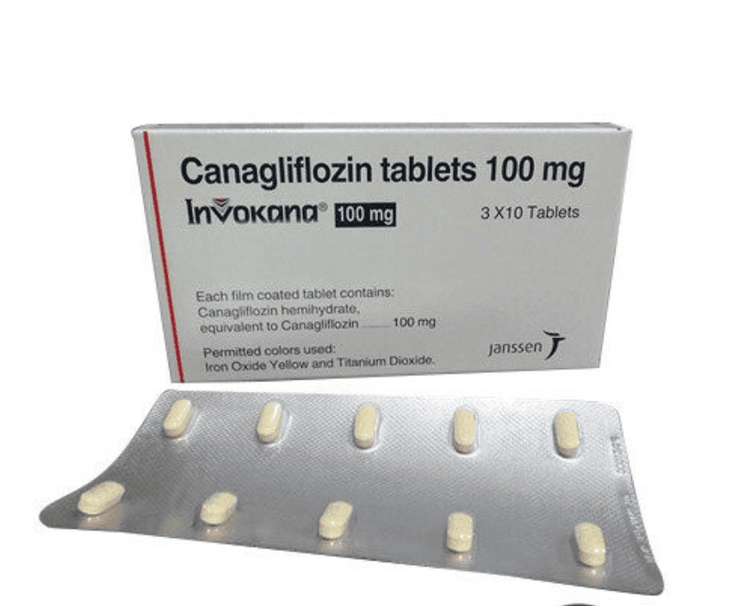
Thuốc Canagliflozin
6. Insulin Therapy
Group ingredients
This group includes Insulin glulisine, insulin lispro, insulin aspart, insulin glargine, insulin detemir, insulin isophane. If these drugs are not enough to control diabetes, the patient will need insulin treatment with insulin injections.
Side effects
The most common side effect of this class of drugs is hypoglycemia. Other side effects include headache, rash, dizziness, anxiety, cough and dry mouth. Some of these symptoms may go away as your body gets used to the medication.

Tiêm insulin điều trị bệnh
Drug interactions
Some drugs affect the way insulin works in the body resulting in blood sugar becoming too low or high. As a result, your doctor will need to monitor your blood sugar, adjust your dose, or change your medication if you use insulin with certain medications such as:
Salicylic acid Some antidepressants Certain antibiotics, like isoniazid and sulfonamides Certain medicines for high blood pressure, such as angiotensin-converting enzyme inhibitors and angiotensin II receptor blockers Certain cholesterol-lowering drugs such as fibrates and niacin Corticosteroids Contraceptives
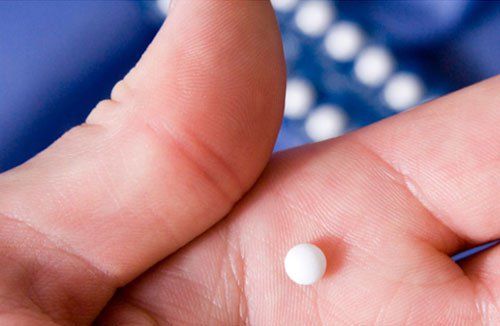
Thuốc tránh thai gây tương tác với insulin
At Vinmec International General Hospital, we always deploy a screening package for diabetes and dyslipidemia to help detect pre-diabetes early, accurately classify diabetes type, develop a nutritional regimen, monitoring to minimize the risk and complications caused by diabetes.
Please dial HOTLINE for more information or register for an appointment HERE. Download MyVinmec app to make appointments faster and to manage your bookings easily.
Articles refer to sources: webmd.com, drugs.com



